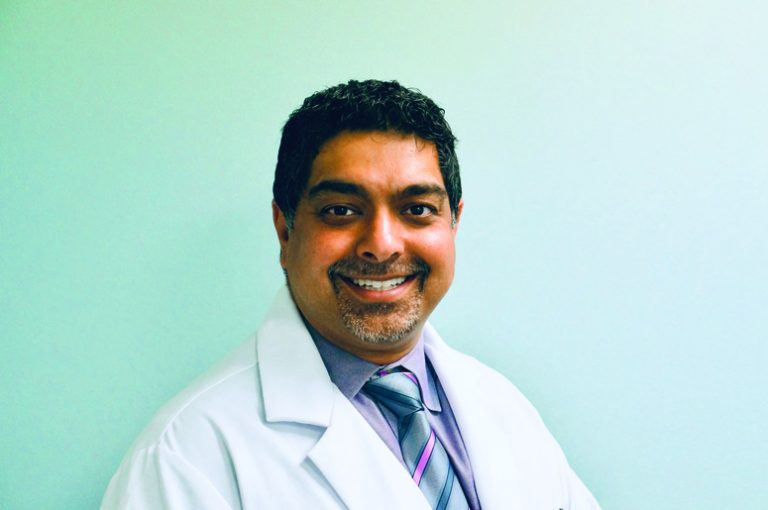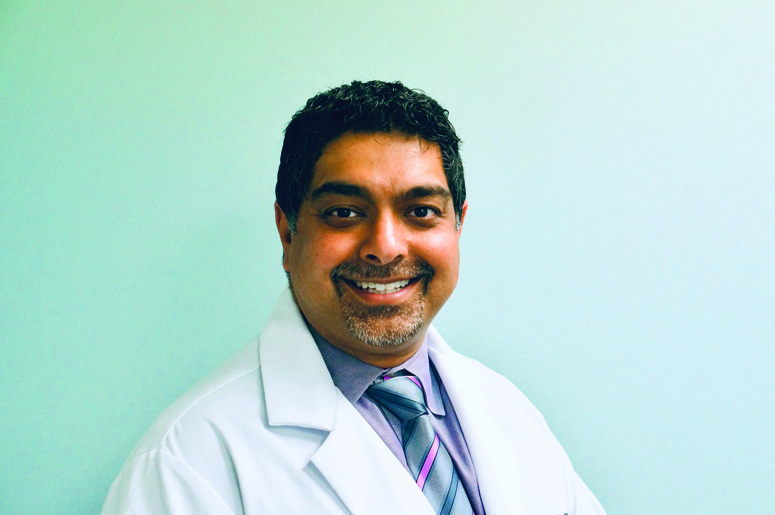Back at ATSU-KCOM, Dr. Saroj Misra helps students become successful
Posted: September 21, 2021
Saroj Misra, DO, FACOFP, ’98, grew up in an allopathic medical family. Both of his parents were MDs, all of the doctors he knew were MDs, and when he decided to apply to medical schools, he initially believed he’d be looking at MD programs.
That was until his father, an interventional cardiologist, suggested he look at osteopathic medical schools. He’d had very few DO residents, but always found them to take the best patient medical histories, to actually put their hands on and examine patients, and they were the residents who treated patients with the respect and dignity they deserved.
Now, Dr. Misra is back at his alma mater as ATSU-KCOM’s associate dean for clinical affairs, a role in which he will advance those residency opportunities and work to ensure students are meeting evolving clinical needs.
“In residency and practice, you are no longer handed information, and they don’t tell you the rules or give you the strategies for success,” Dr. Misra said. “You have to be willing to search that out. The answer isn’t in a textbook.
“Becoming professional and successful requires an integration not only of what the culture of the society of medicine asks of you, but what you internally value and identify as important. You cannot be professional without learning the skills of reflection and insight, and then turning those insights into action plans to improve performance over time.”
He initially set out to become a teacher and earned a bachelor of arts degree in English language and literature from the University of Michigan-Ann Arbor. Dr. Misra has found that degree and training provided some of the most useful tools in his practice of medicine.
“I learned the importance of clear and effective communication from studying language and literature,” he said. “This is such a critical piece of what separates a doctor who is excellent from a doctor who is merely competent.”
Dr. Misra sees the medical education model shifting to provide students more clinical opportunities in their first and second years, with an emphasis on communicating with patients, fully embracing Dr. A.T. Still’s founding osteopathic tenets of addressing the body, mind, and spirit.
“You cannot fully and adequately care for any patient with any medical, physical ailment, if you are not at the very least assessing and addressing the impact it has both psychologically and spiritually/emotionally,” Dr. Misra said.
“I see part of my responsibility in ensuring we have good clinical experiences that help the student learn the elements not easily taught through a textbook or on a website.”
